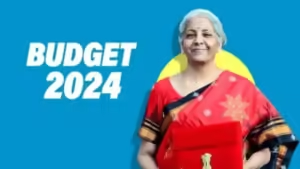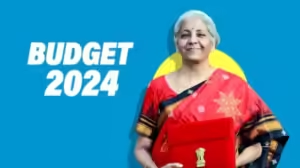GST WEEKLY UPDATE : 2/2023-24 (09.04.2023) By CA Vipul Khandhar

-By CA Vipul Khandhar, Ahmedabad
- GST Portal Update: Reduced Late Fees for Pending GST Annual and Final Returns GSTR-9, GSTR-9C and GSTR-10 Implemented:
Portal has implemented the reduction of late fees for late filing of pending Goods and Services Tax Returns – GSTR-9, GSTR-9C and GSTR-10. The Central Government, by the Notification No. 02-07/2023, has notified many amendments to the Central Goods and Services Tax Act, 2017 and Central Goods and Services Tax Rules, 2017, lessening the GST compliance burden on the taxpayers. The Central Government, by the Notification Nos. 02-07/2023, had notified many amendments to the Central Goods and Services Tax Act, 2017 and Central Goods and Services Tax Rules, 2017, lessening the GST compliance burden on the taxpayers.
Tax payers fails to file GSTR-4 for the period FY 2017-18 to 2021-22 but furnish in 01-04-2023 to 30-06- 2023 late fees max to Rs.250/- CGST and Rs.250/- SGST.
- Amnesty to GSTR-10 non-filers – Late fee for filling of Final Return GSTR 10 is capped at Rs1,000/- if filled before 30/06/2023:
| Registered persons having an aggregate turnover | Amount of late fee Rs. |
| Up to Rs.5 Cores (Rs.25 CGST+Rs.25 SGST) | Rs.50 per day |
| More than Rs.5 crores and less then Rs.20 crores (Rs.50 CGST+Rs.50 SGST | Rs.100 per day |
The maximum late fee is calculated at 0.04% (0.02% CGST+0.02% SGST) of Turnover in the State or Union Territory.
3. CBIC notifies New Procedure for Revocation of Cancellation of GST Registration:
Portal allowed Tax payers, whose registration has been cancelled on or before 31-12-2022 and failed to apply for revocation of cancellation within time period may apply for revocation up to 30-06-2023 after filing of all returns.
The Council had also recommended that an amnesty may be provided in the past cases, where registration has been cancelled on account of non-filing of the returns, but application for revocation of cancellation of registration could not be filed within the time specified in section 30 of Central Goods and Services Tax Act, by allowing such persons to file such application for revocation by a specified date, subject to certain conditions.
- Electronic Cash Ledger (ECL) with effect from 01 April 2023 for the importer: April 2023 till 30 April 2023:
Exemption to deposit to the following:
Deposits with respect to Goods imported or exported in Customs stations where Customs Automated System is not in place
Deposits with respect to Accompanied baggage; Deposits with respect to Goods imported or exported at International Courier Terminals
Deposits, other than those used for making electronic payment of:
Any duty of customs, including cesses and surcharges levied as duties of customs; integrated tax; Goods and Service Tax Compensation Cess; interest, penalty, fees or any other amount payable under the Act, or Customs Tariff Act As above refers to the term “electronic”, the payment made through TR-6 challan for various purposes through authorized bank counter at the Customs locations would be exempted.
Phase – 2: From 01 May 2023: Exemptions cited above would continue, except for the deposits with respect to goods imported or exported at International Courier Terminals.
Registration: Person needs to register on ICEGATE and to create ECL account to make deposits.
Below entities can register for ECL Account: Importers and Exporters; Customs Brokers / couriers, making payment on behalf of Importer / Exporter; importers who are assigned Unique Identification Number (UIN) under GST Deposits and payment of liability using ECL:
A deposit challan to be generated on portal, and deposit to be made in ECL using the authorised payment (internet banking / NEFT / RTGS) from specified banks; Amount deposited shall be visible on the ECL. Payment from ECL can be done using Payment Challan generated at ICES / ECCS or other applications; Functionality to make payment without first depositing in ECL, using Internet Banking / NEFT / RTGS function is also made available; Refund of balance in ECL: Refund of un-utilized balance in ECL can be applied on ICEGATE portal;
- AAR & Judicial Decisions:
(i) AAR On Companies not to pay GST on employees’ share of canteen charge:
(Applicant – M/s. AIA engineering Ltd)
Held that GST is not leviable on the amount representing the employee’s portion of canteen charges recovered/collected by the company and paid to the canteen service provider since it would not be considered as a supply. However, ITC will be available to the company on its share in total amount paid to the canteen service provider.
Similarly, while disposing application by Cadila, GAAR said that the subsidized deduction made by the applicant from the employees who are availing food in the factory/corporate office would not be considered as a ‘supply’. The ITC will be restricted to to the extent of the cost borne by the company for providing canteen services to its direct employees.
APAAR cited provisions of State’s Factory Act which mandates providing canteen services and concluded that GST would not be applicable on employees’ share of canteen charges.
(ii) AAAR on for water connection, electric meter installation and deposit for meter, development charges and legal fees are “inextricably linked” to the primary service of construction, Lower 12% GST for services linked to flat construction:
(Applicant – Puranik Builders)
The appellate bench held that charges for several services collected by the developer, Puranik Builders, such as for water connection, electric meter installation and deposit for meter, development charges and legal fees are “inextricably linked” to the primary service of construction. These charges will be part of a “composite” or bundled supply and will be subject to Goods and Services Tax (GST) at the rate applicable to construction services — which is a lower rate of 12%. The Authority of Advance Ruling, in its August 2021 ruling, had held that charges for all other services provided by the builder were independent services and thus subject to GST at 18%. This led to Puranik Builders filing an appeal with the AAAR and the earlier order was partly reversed.
From April 1, 2019, the revised GST rate for construction services has been 5% without input tax credit for housing projects that do not fall in the affordable housing segment. For ongoing projects, though, builders can opt for the 12% rate with input tax credit. Typically, a builder also provides “other services” against which charges are collected. These range from services such as providing a water connection to collection of advance maintenance charges prior to formation of the housing society by the buyers. These other services are listed in the agreement for sale, which a builder entersinto with flat-buyers.
(iii) AAR On Floor mats, made of PVC leather mixed with other substances, for four-wheelers will attract 28 per cent Goods and Services Tax (GST):
(Applicant – Autotech)
The Authority for Advance Rulings (AAR) of Gujarat has ruled in the case of autotech held that:
The AAR, however, observed that since 3904 clearly provides that it covers PVC items not mixed with any other substance, the product does not fall in this category. The product also does not fall under 3918 as it covers within its ambit floor wall and ceiling coverings of plastics, the AAR said.
It ruled that the product comes under 8708, which covers parts and accessories of motor vehicles subject to certain conditions. This classification draws a GST of 28 per cent.
Disclaimer:
This publication contains information for general guidance only. It is not intended to address the circumstances of any particular individual or entity. Although the best of endeavour has been made to provide the provisions in a simpler and accurate form, there is no substitute to detailed research with regard to the specific situation of a particular individual or entity. We do not accept any responsibility for loss incurred by any person for acting or refraining to act as a result of any matter in this publication.
(Author is a well known Chartered Accountant practicing @ Ahmedabad)





